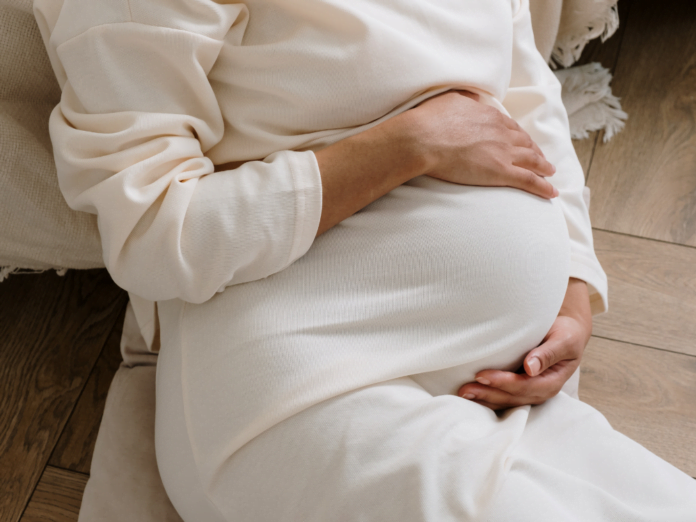Pregnant women are often bombarded with the do’s and don’ts of pregnancy. Well here are some simple tips for you to follow to ensure your staying safe and healthy during your pregnancy:
1. Eat For Two
During pregnancy, you need more nutrients like iron, calcium, folic acid, and protein. You also need more calories. But keep in mind that “eating for two” doesn’t mean you need to eat twice as much. This is a common misconception among pregnant women. Eating for two means that the foods you eat are the main source of nutrients for your baby. What you should be concentrating on is sensible, balanced meals combined with regular physical activity.
2. Gain Weight
The amount of weight you should gain during pregnancy varies based on your body mass index (BMI). The Institute of Medicine suggests:
- If you are at a normal weight before pregnancy, a healthy weight gain is 25 to 30 pounds.
- If you are underweight before pregnancy, a healthy weight gain should be between 28 and 40 pounds.
Talk with your doctor to determine how much weight gain is healthy for you and your baby.
3. Determine Your Calorie Needs
Your calorie needs will depend on your weight gain goals. Most women only need 300 more calories a day during at least the last six months of pregnancy than they do before they were pregnant. Remember that your baby needs food that will nourish them. All calories are not created equal. Instead of a bag of potato chips, opt for kale chips instead.
Also be careful not to deprive yourself during pregnancy. If you are not getting the calories you need, your baby might not get the right amount of vitamins and minerals s/he needs.
4. How to Determine What Foods Are Safe
Most foods are safe during pregnancy but there are a few that you should stay away from. These include:
- Refrigerated smoked seafood like whitefish, salmon, and mackerel
- Hot dogs or deli meats unless steaming hot
- Refrigerated meat spreads
- Unpasteurized milk or juices
- Store-made salads, such as chicken, egg or tuna salad
- Unpasteurized soft cheeses
- Shark, swordfish, king mackerel, or tile fish – these fish have high levels of mercury
- More than 6 ounces per week of white tuna
- Herbs and plants used as medicines without your doctor’s consent
- Raw sproutsDO remember to eat the same amount of fish during and after pregnancy. The omega-3 fatty acids consumed by pregnant women may aid in babies’ brain and eye development and ward off depression in the mother during and after pregnancy.
5. Take Your Vitamins & Minerals
Ask your doctor about taking a prenatal vitamin and mineral supplement every day to ensure your baby is getting the nutrient s/he needs. Pregnant women need about 400 to 800 mcg of folic acid, 27 mg of Iron, 1,000 mg of calcium, 770 mcg or Vitamin A, and 2.6 mg of B12 vitamin.
6. Don’t Forget to Hydrate!
Pregnant women need more water to keep yourself and your baby hydrated. Talk to your doctor about your hydration needs to avoid constipation, hemorrhoids, excessive swelling, and urinary tract or bladder infections. Not getting enough water can lead to premature or early labor.
7. Avoid Alcohol
There is no known safe amount of alcohol a pregnant woman can consume. When you do drink alcohol while pregnant, the alcohol gets into your bloodstream, which gets into your baby’s body through the umbilical cord. This can slow down the baby’s growth, affecting their brain and cause birth defects.
8. Have Caffeine in Moderation
Moderate amounts of caffeine appear to be safe during pregnancy, moderate meaning less than 200 mg a day. That’s about 12 ounces of coffee. Cut down on your caffeine intake to be sure your keeping yourself and baby safe and healthy.
9. Stay Fit
Fitness and eating healthy are some of the most important factors of a safe pregnancy. Healthy pregnant women should get at least 2 hours and 30 minutes of moderate-intensity aerobic activity a week. Talk to your doctor about how much physical activity you should be getting and what is considered safe activity. There are several benefits to staying fit during pregnancy. These include:
- Exercising can ease pain during pregnancy
- Exercise can better prepare you for labor and delivery and allow you to be more resilient after delivery
- Fit women have a easier time getting back to a healthy weight after delivery
- Staying active can protect your emotional health
10. Quit Smoking
As you may know, smoking cigarettes is very harmful to your health and to your baby’s health. Not only does smoking cause cancer and heart disease, smoking during pregnancy also increases the risk of low birth weight. Low birth weight babies are at higher risk of health problems after birth and may be linked to health problems later in life, such as high blood pressure and diabetes. Women who smoke during pregnancy are more likely to have a miscarriage and to have a baby born with a cleft lip or palate. Talk to your doctor about how to quit smoking today.


